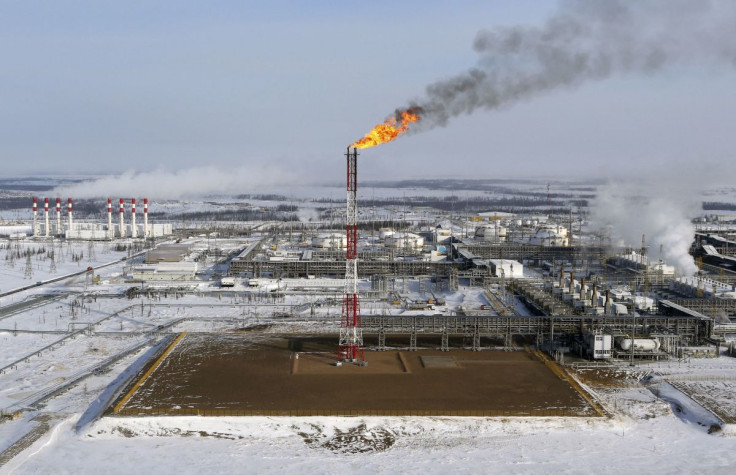Oil Steady As Economic Worries Offset Tightening Of Supplies

Oil prices were steady in a seesaw session on Tuesday as worries about economic growth offset supply concerns and the prospect of higher demand as China relaxes lockdowns set to control the coronavirus pandemic.
Brent futures fell 29 cents, or 0.2%, to $119.22 a barrel by 1:28 p.m. EDT (1728 GMT) while U.S. West Texas Intermediate (WTI) crude fell 65 cents, or 0.6%, to $117.85.
Treasury Secretary Janet Yellen told senators that the United States faces "unacceptable levels of inflation" and an appropriate budgetary stance is needed to help dampen inflationary pressures without undermining the economy.
The World Bank slashed its global growth forecast by nearly a third to 2.9% for 2022, warning that Russia's invasion of Ukraine has compounded the damage from the COVID-19 pandemic, and many countries now face recession.
Also weighing on oil prices was a U.S. authorization for Italian energy company Eni SpA and Spanish energy company Repsol SA to start shipping Venezuelan crude to Europe from July to replace lost Russian barrels.
Russia, meanwhile, was ramping up oil exports from its eastern port of Kozmino by about a fifth.
The U.S. Energy Information Administration (EIA) projected that U.S. crude production and petroleum demand will both rise in 2022.
Prices drew support from expectations demand would recover in China, where the capital Beijing and commercial hub Shanghai have been returning to normal after two months of lockdowns to control the pandemic.
Also, analysts doubted that global oil supplies would rise much following last week's OPEC+ decision to bring forward production increases.
The quota increase from OPEC+, the Organization of the Petroleum Exporting Countries (OPEC) and allied producers including Russia, is lower than the loss of Russian crude resulting from Western sanctions, analysts said, adding that it also fails to address a shortage in oil products.
"Refining margins globally suggest that petrol and diesel remain in heavy demand, with the logjam in refined products backstopping crude prices," said Jeffrey Halley, a senior Asia Pacific market analyst at OANDA.
Trafigura's CEO said oil prices could soon hit $150 a barrel and go higher this year, with demand destruction likely by the end of the year.
Goldman Sachs increased its Brent oil price forecasts by $10 to $135 a barrel for the period between the second half of 2022 and the first half of next year, citing an unresolved structural supply deficit.
There were also a couple areas of supply concern that helped support prices earlier in the day.
In Libya, the Sharara oilfield was halted again late on Monday.
In Norway, more than one in 10 offshore oil and gas workers plan strike action from Sunday if state-brokered wage mediation fails.
Looking ahead, analysts forecast that U.S. crude inventories fell last week, according to a Reuters poll. If correct, the drop in crude stockpiles could lend support to oil prices.
The American Petroleum Institute (API), an industry group, will issue its inventory report at 4:30 p.m. EDT (2030 GMT) on Tuesday, while the U.S. Energy Information Administration (EIA) reports at 10:30 a.m. EDT on Wednesday.
© Copyright Thomson Reuters 2024. All rights reserved.




















